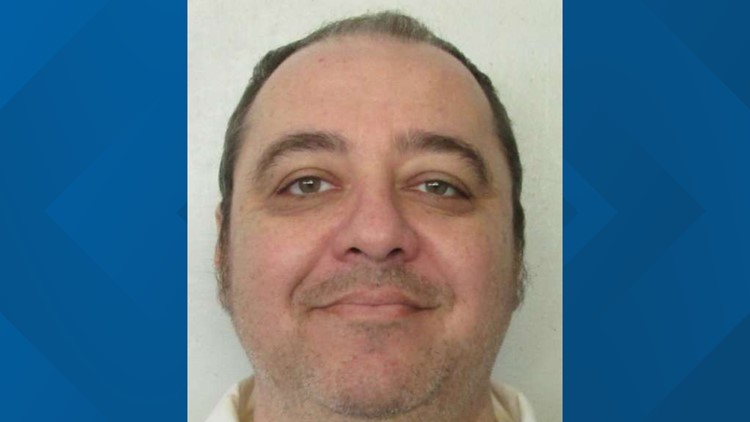MONTGOMERY, Ala. — Two Alabama executions are on hold at the request of Governor Kay Ivey, who has ordered a "top-to-bottom review" of the state's execution protocols. This comes after two recent failures in the executions of Kenneth Eugene Smith and Alan Eugene Miller.
Smith and Miller were both scheduled to die by lethal injection earlier this year. In both cases, the executions were called off after workers were unable to find veins to properly deliver the medications per the state's protocols.
Governor Kay Ivey asked Attorney General Steve Marshall to withdraw the state’s two pending motions to set execution dates in the cases of Alan Eugene Miller and James Edward Barber, the only two death row inmates with such motions currently pending before the Alabama Supreme Court. She is asking that the Department of Corrections undertake "a top-to-bottom review of the state’s execution process, and how to ensure the state can successfully deliver justice going forward".
The uncompleted execution of Kenneth Eugene Smith was the state's second such instance of being unable to kill an inmate in the past two months and its third since 2018. The state completed the execution of Joe Nathan James, Jr. in July, but only after a three-hour delay caused at least partly by the same problem with starting an IV line.
According to AP, prison officials said they called off Smith's execution for the night after they were unable to get the lethal injection underway within the 100-minute window between the courts clearing the way for it to begin and a midnight deadline when the death warrant expired for the day. The U.S. Supreme Court cleared the way for Smith’s execution when at about 10:20 p.m. it lifted a stay issued earlier in the evening by the 11th U.S Circuit Court of Appeals. But the state decided about an hour later that the lethal injection would not happen that evening.
On November 18, the Alabama Department of Correction said in an emailed statement to the AP: "We have no concerns about the state’s ability to carry out future lethal injection procedures." On the same day, Gov. Ivey said that the department will continue to review its processes as it routinely does following executions, to "identify areas of improvement". She also blamed Smith's last-minute appeals for "justice not being carried out".
Ivey echoed those sentiments in her request for the pause on executions, stating, "For the sake of the victims and their families, we’ve got to get this right. I don’t buy for a second the narrative being pushed by activists that these issues are the fault of the folks at Corrections or anyone in law enforcement, for that matter. I believe that legal tactics and criminals hijacking the system are at play here."
She also says that her reason for the pause is for the sake of victim's families. “I will commit all necessary support and resources to the Department to ensure those guilty of perpetrating the most heinous crimes in our society receive their just punishment. I simply cannot, in good conscience, bring another victim’s family to Holman looking for justice and closure, until I am confident that we can carry out the legal sentence.”
In the case Joe Nathan James, Jr. in July 2022, the execution went forward despite pleas from the victim's family that his life be spared and that his sentence be commuted to into life without the possibility of parole.
Kim Chandler and Jay Reeves of the Associated Press contributed to this story.



